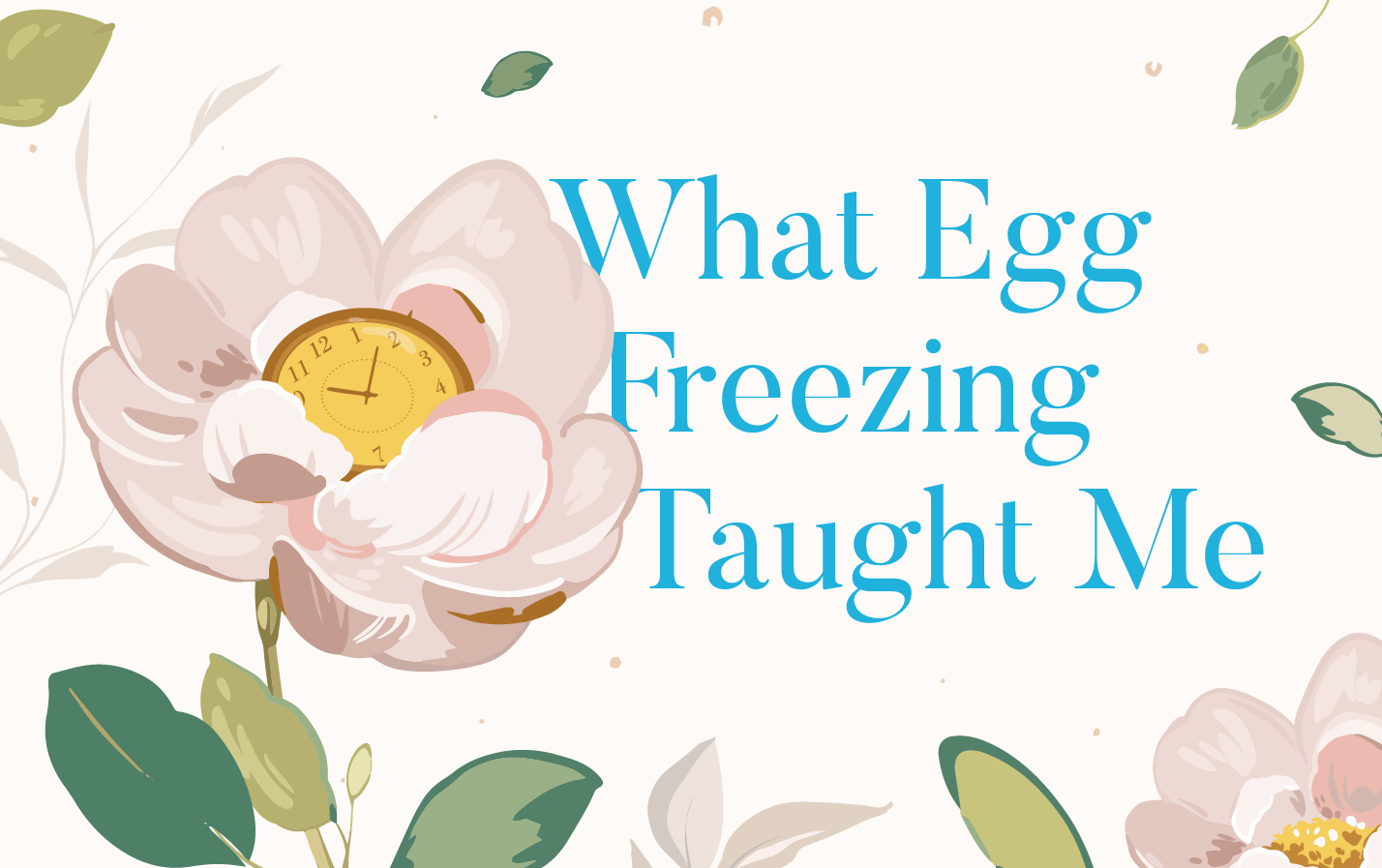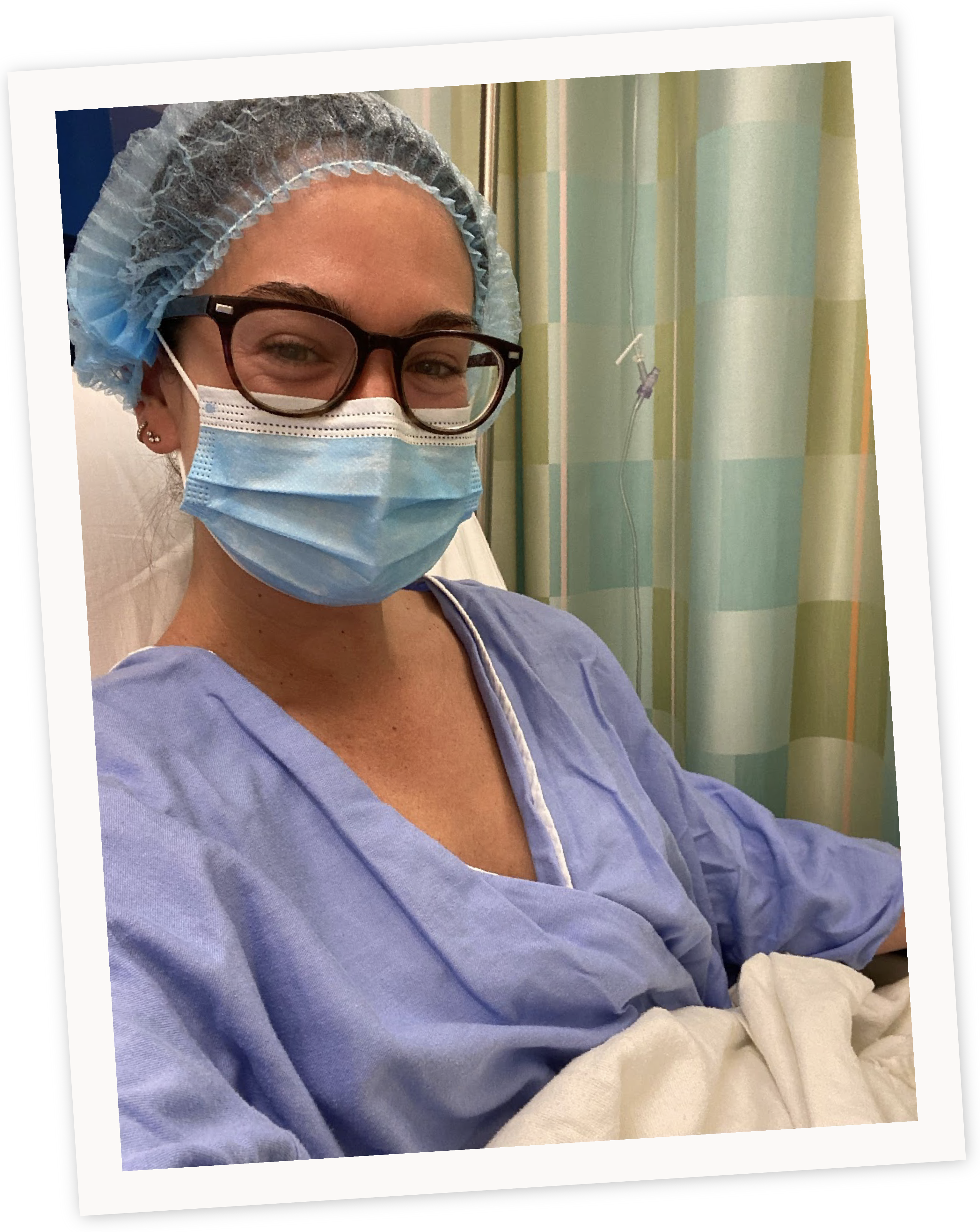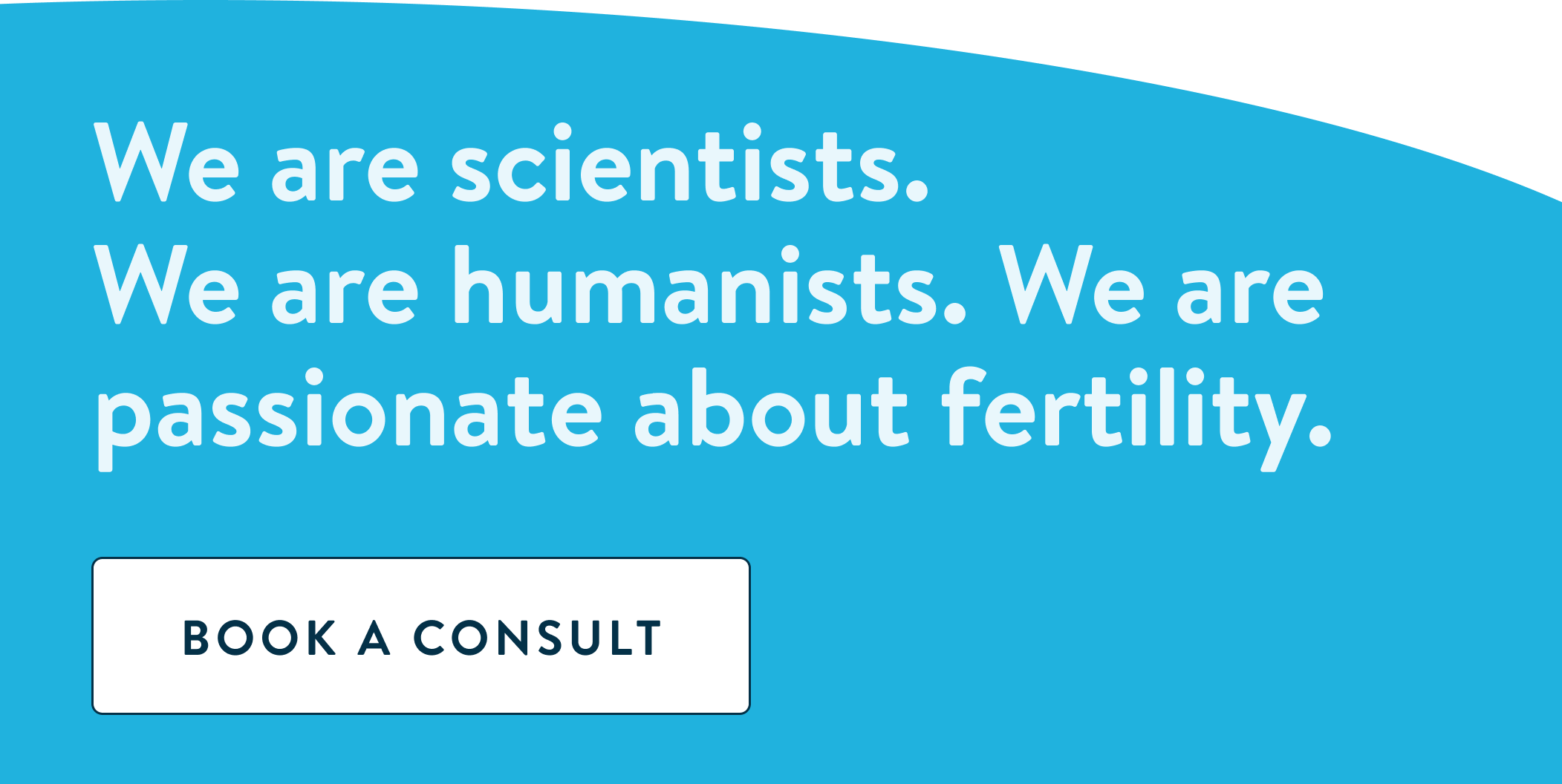
Fertility Preservation | Community
Spring Stories: What Egg Freezing Taught Me About Time
When I first began working at Spring Fertility five years ago, my knowledge about egg freezing was minimal. My exposure to fertility preservation as a concept was limited to casual happy hour conversations and multiple degrees of separation — i.e., my friend’s co-worker’s sister had frozen her eggs… It was a concept that felt wildly out of reach and intimidating.
Fast forward just a few short weeks into the job, and I was espousing the benefits of egg freezing to anyone who would listen! My mind was blown. I couldn’t fathom how as a woman in my prime reproductive years with a relatively high degree of medical literacy, I didn’t have access to this information sooner. I went from thinking about egg freezing as something that only celebrities did, to passionately educating my friends and family members all about the why, how, and when.
And yet, even armed with all of the knowledge about female biology, the data around the safety and efficacy of the process, and knowing our fertility doctors and nurses as friends, I still found it HARD to say that I was ready to freeze my eggs (and I’m fortunate enough to have benefits!).
I couldn't control the timing of meeting a partner, but I could certainly take steps to give myself peace of mind.
I have always known that I want to have kids one day, and while I had reached a place of acceptance around not knowing exactly how or when that would happen for me, there was still an element of grieving the “ideal timeline” that I had set for myself. I had to totally let that go and surrender: I couldn’t control the timing of meeting a partner, but I could certainly take steps to give myself peace of mind.
Once I had overcome the mental and emotional hurdles, I thought it would all be smooth sailing. However, my ovaries had a slightly different plan, once more reminding me that there is so much outside of my control. It turns out that I have a lower-than-average ovarian reserve for my age, and so whereas someone else may get 20+ mature eggs from one cycle, I was managing my expectations to get between 4 – 8 eggs per cycle. Even though I know that a lower ovarian reserve doesn’t have an impact on a woman’s ability to conceive naturally, I was still disappointed that my body wasn’t going to make this easy on me. More than ever, I was grateful to be freezing my eggs with a team who I trusted implicitly and who I felt supported by throughout each stage of the process.
As far as the actual injections and egg retrieval procedures went, I had a relatively easy experience (an upside to having fewer eggs is having fewer side effects). The first night of shots, I was intimidated and a little nervous. After the first night, I quickly became a pro, and by the end I was giving myself injections in restaurant bathrooms and the Trader Joe’s parking lot. I did have nightmares after my trigger shot that I had administered it incorrectly, but that was just in my head — my retrieval was also a breeze. It was my first time undergoing anesthesia, and I was scared, but after the best 20 minute nap of my life and the sweetest apple juice upon waking, I realized my fears were unfounded.

I know that everyone’s egg freezing story is different. I’ve had the privilege of speaking with hundreds of women over the last few years about their experiences, and I’m continually blown away. There’s a great strength and selflessness in taking action today for your future and future family.
If I had to give advice to anyone considering egg freezing, it would be:
1. Let go of your desire to control for a specific outcome. You can have a vision for how you want this process to go, and yet your body is going to respond in a way that is totally unique to you. Set yourself up for success however possible, and then trust your clinic and your team.
2. Allow yourself time and space to grieve your “ideal timeline” if necessary. I know that many women did not have ‘fertility treatments’ as a planned stop in their game of Life, and it’s totally normal and valid to feel disappointed. Something that helped me through this was reflecting on the times in life where things unfolded even better than I could have planned for.
3. Lean on your community. It can feel vulnerable and scary to admit that you need support, and yet when you do, I guarantee you’ll be wrapped in kindness and generosity by the people in your life. So, ask for help. Ask for a friend to Facetime you during your injections. Find a buddy to go for a walk with during treatment. Gratefully accept people’s offers of UberEats and DoorDash. Talk to your Care Team and Physician about how you’re feeling – you’re not alone.
